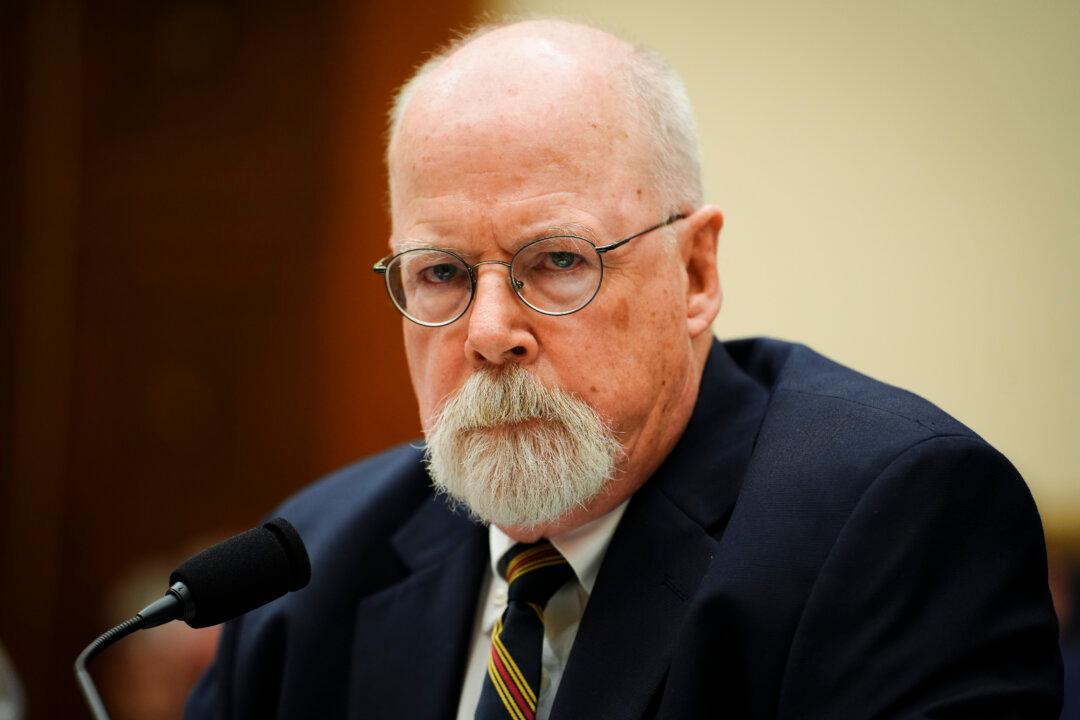The Department of Justice (DOJ) rules should change so that FBI agents lose their jobs when they lie to misuse the government’s spying powers in sensitive investigations, Special Counsel John Durham suggested to Congress.
Durham, who recently released a report on his review of the FBI’s handling of the 2016 Trump-Russia investigation, acknowledged that he found conduct that was wrong or “probably criminal,” but would have been difficult to prosecute in a court of law.





